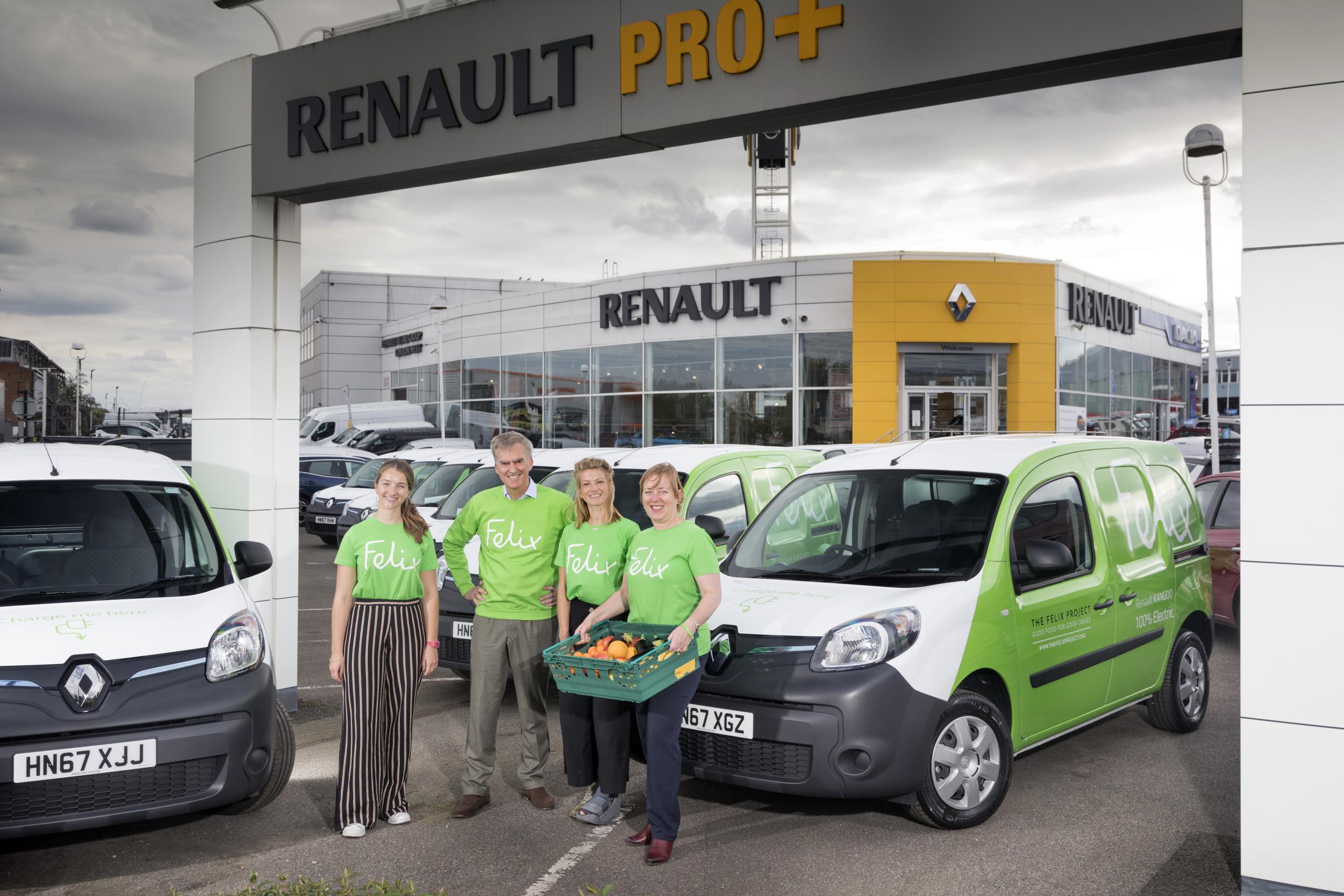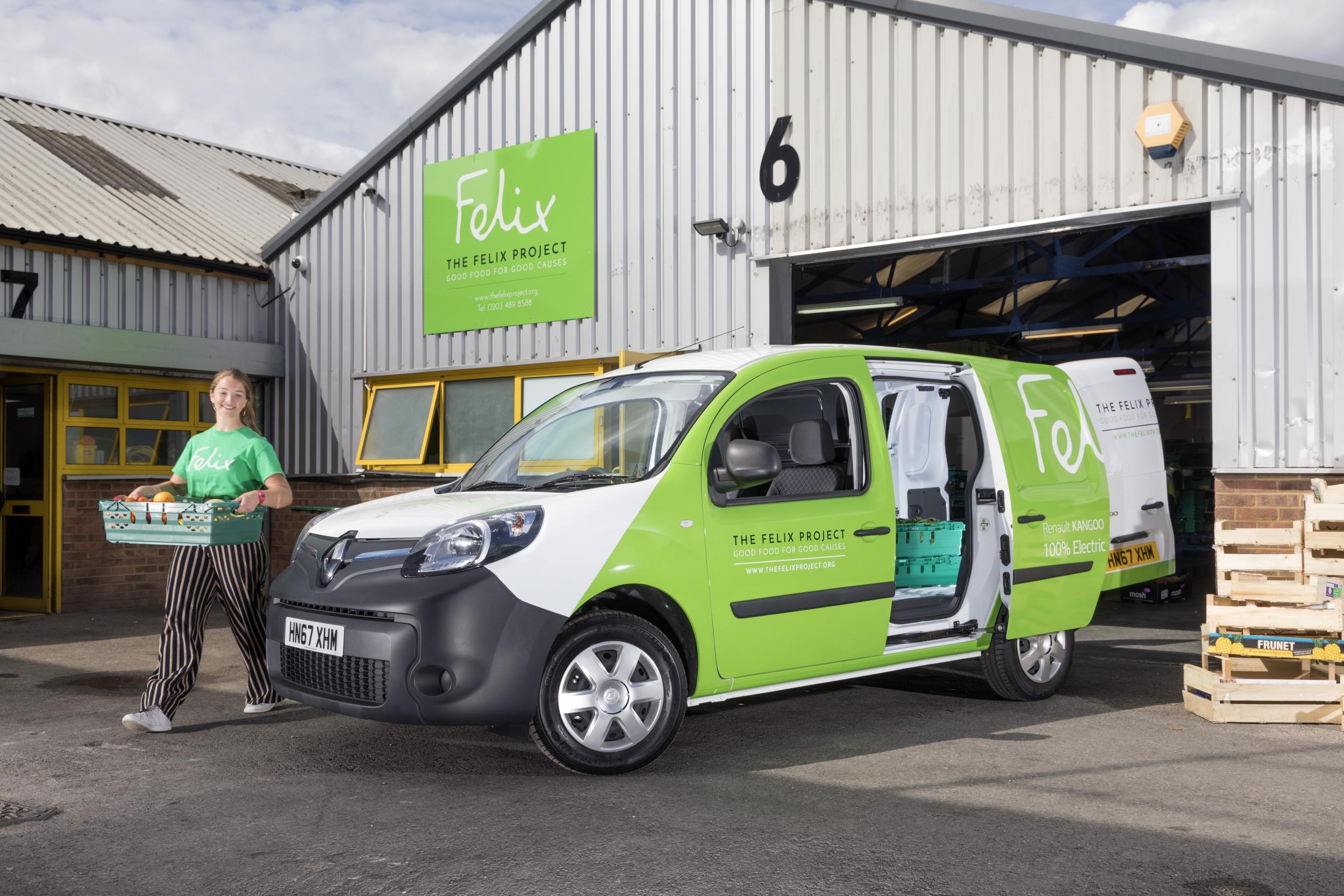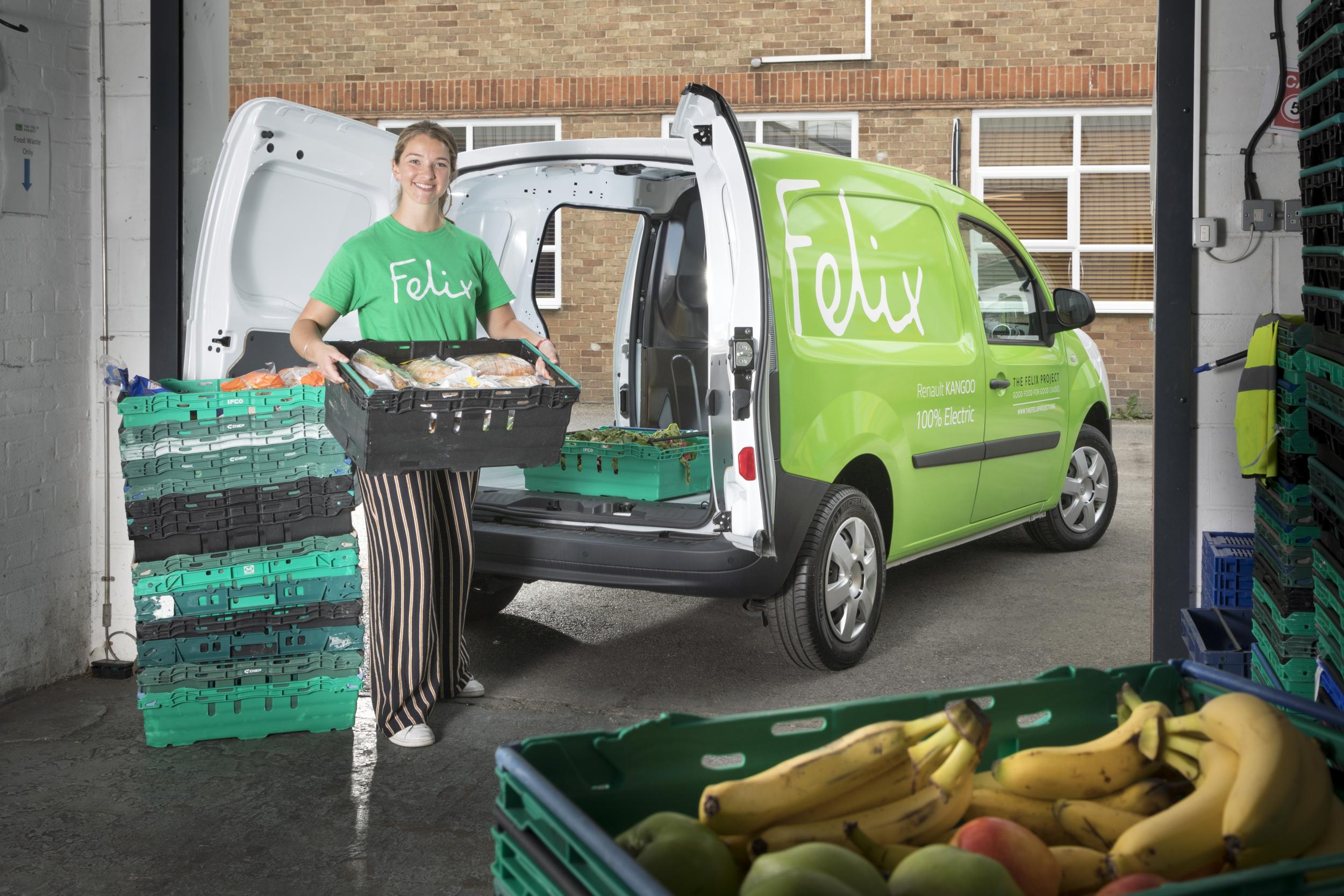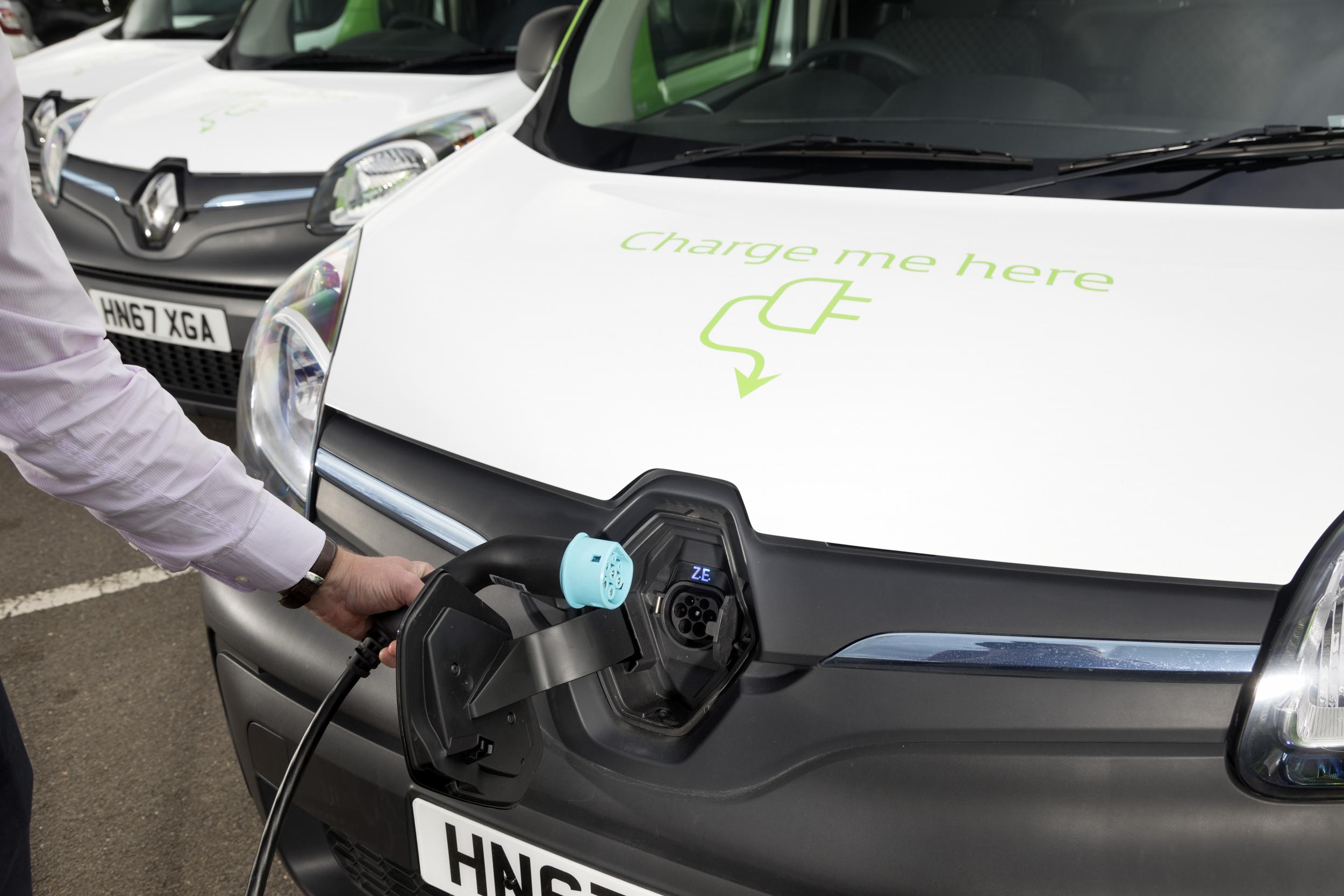Electrifying future for food waste charity
Renault and charity The Felix Project are working together to help some of London's most disadvantaged residents

Renault is increasing its generous support of the London-based Felix Project with the donation of a further seven all-electric Renault Kangoo Z.E. panel vans. This will allow the charity to expand its operation to provide the capital’s most disadvantaged inhabitants with fresh food – and to do so in the most environmentally sustainable way.
The Felix Project specialises in recycling food waste, taking fresh but discarded produce from retailers, cafes and restaurants to charities, schools, food banks and other recipients around London.
The founder of The Felix Project, Justin Byam Shaw, began the charity in March 2016 in memory of his late son, to tackle the twin scandals of food waste and food poverty. Felix Byam Shaw died of a rare virulent strain of meningococcal disease in 2014, aged 14.
“I believe that food poverty can be solved if food waste is properly addressed,” said Mr Byam Shaw. “Just 7 per cent of the food industry’s 270,000 tonnes of edible surplus reaches charities. The rest is spread on crops, burned or buried in a hole in the ground.
“This makes no social, economic or environmental sense. So I love the fact that we are moving from fossil fuels and we hope all our food is delivered by Renault electric vans, bicycles and foot before long. London really doesn’t need any more carbon emissions. If Felix can deliver 3 tonnes of food around London every day by electric van, then why can’t other organisations distribute their goods in the same way?”
Mr Byam Shaw is a shareholder in the company that publishes The Independent.

The development strengthens the partnership between Renault and The Felix Project, which was helped to get off the ground with an initial donation of a single Kangoo Z.E. The new vans will grow the charity’s fleet, which also incudes Ford commercial vehicles, by more than 50 per cent, enabling it to significantly increase the 20 tonnes of food they currently deliver each week.
This food is collected from supermarkets, wholesalers and other suppliers, and distribute free of charge to around 200 charities and schools throughout London. In turn, these organisations then provide meals, snacks or food parcels to those in need, including elderly or homeless people, struggling families, those with mental health issues, refugees and asylum seekers.
All of the vans will initially be based at The Felix Project’s central London operation. Vehicles that are already in-use in the depot will be allocated to the charity’s other sites with the result that the central operation’s distribution and collection service will be 100 per cent electric.
The constant stop/start for collections and drops, shorter average journey lengths and the demanding nature of driving in the capital mean that the Kangoo Z.E. is the perfect vehicle for the charity’s work. Like other electrically powered vehicles, the Kangoo Z.E. boasts an automatic transmission and good acceleration, which reduces stress on drivers, who are often volunteers. The Kangoo Z.E. is also exempt from the London Congestion Charge.

The Kangoo Z.E.’s payload of 640kg – near identical to that of its diesel counterpart – also makes it exceedingly versatile – able to accommodate 32 crates of food, which is enough to deliver to, say, four primary schools.
The idea for The Felix Project charity was born out of Mr Byam Shaw’s son Felix’s compassion for fellow youngsters who didn’t have his advantages and, in particular, after he played in a football match and discovered that some of the opposing team of 10-year-old boys from south London hadn’t had anything to eat that day.
Anne Elkins, development manager for The Felix Project’s school programme, added “The new Kangoo Z.E.s will make a big difference to our operation, allowing us to plan more routes and also collect more donations that are made available on an ad hoc basis and which need to be collected in a short time frame.”
Vincent Tourette, the managing director of Groupe Renault UK, said: “We’re exceptionally pleased to extend our support of The Felix Project. The charity is passionate in what it does and it’s a privilege for us to play a part in helping them to grow their operation and ultimately supply food to those in the capital who are in the most need. With its latest Kangoo Z.E. The Felix Project can extend their reach but also invest the majority of their current fuel and congestion charge costs back into other areas of the business.”

The Kangoo Z.E.33 has a real-world range of 124 miles and has a load capacity of up to 4.6m³. The single-phase 7kW AC charger can take the new 33kWh battery to a full charge in just six hours, with the ability to “top-up” the vehicle by up to 21 miles in just one hour.
The Kangoo Z.E. 33 is priced from £14,799, excluding VAT, after the Plug-in Van Grant.
To learn more about The Felix Project, visit thefelixproject.org
Join our commenting forum
Join thought-provoking conversations, follow other Independent readers and see their replies
Comments
Bookmark popover
Removed from bookmarks